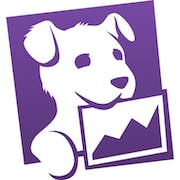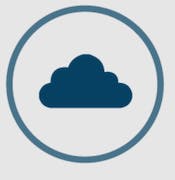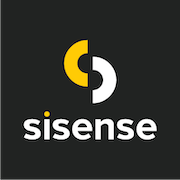Discover the best big data software for your business needs. Our comprehensive buyer's guide highlights top-rated solutions with features, pricing, and reviews. Click now to learn more.
Looking to improve you business operations, drive innovation, and gain valuable insights into your customer's behavior? Well, big data is the answer. A true game changer for many organizations worldwide, this tool allows to beat analytical challenges by identifying patterns, trends, relationships, and insights, ultimately helping them stay competitive.
We know that choosing the right software can feel overwhelming, but don't worry – this guide is here to assist you navigate through the options! We'll cover everything you need to know to make the right choice, from the features to look for to how to evaluate different software options. Let's get started.
Big data software: what is it?
Big data software is a type of software that helps organizations manage, analyze, and utilize large datasets too large to be handled by traditional data processing software. With the exponential growth of data, traditional methods of management and analysis are no longer effective. That's when you need to turn to analytics tool to help you efficiently manage and make sense of the information. According to market researchers at IDC, worldwide spending on big data and business analytics solutions grew 10.1% in 2021 to total an estimated $215.7 billion.
What are the common use cases for big data software?
Big data tools are used by a variety of industries, primarily by companies that rely heavily on data-driven insights. This includes financial institutions that leverage data to assess risk and identify investment opportunities, retail companies that aim to provide personalized experiences to consumers, and manufacturing organizations that optimize their operations using data. Common use cases of such a solution include:
- Business intelligence: Big data software can be adapted to analyze and visualize information to help businesses make decisions based on hard data and metrics.
- Predictive analytics: It helps companies build predictive models to identify upcoming trends and anticipate potential risks and opportunities.
- Fraud detection: It can detect and prevent fraud by analyzing transactions and identifying unusual patterns.
- Personalization: It can help companies provide a personalized experience to their customers by analyzing their preferences and behavior.
- Supply chain optimization: It is used to optimize supply chain operations by analyzing data on inventory, shipments, and deliveries.
- Healthcare: Big data solutions can be used to analyze large amounts of medical data, such as patient records, to help improve healthcare outcomes.
By investing into a big data tool, businesses can make more informed decisions, enhance customer experiences, optimize costs, gain competitive advantage, and prevent fraudulent activities.
What are the benefits of big data software?
In today's data-driven world, businesses are generating and processing massive amounts of data every day. Crucial for identifying trends, and patterns, correct information can help businesses stay ahead of the competition. However, managing data can be a daunting task without the right software. This is where a batch processing tool comes in. Here are some of the major benefits of using this for businesses.
Better decision-making
Processing software provides deep insights from large data sets. This enables companies to quickly draw meaningful conclusions from the vast amount of information.
Improved customer experience
Software lets businesses analyze customer information and provides insights into their preferences, behavior, and feedback. Armed with this knowledge, they can provide a more personalized and customized customer experience.
Cost optimization
In comparison to traditional databases, a big data tool can help businesses to optimize their operational costs by identifying areas of inefficiency, cutting costs and streamlining processes.
Fraud detection
It can efficiently detect fraudulent activities by pinpointing suspicious behavior and activity patterns. This provides businesses with a powerful tool to prevent fraudulent activities before they cause substantial damage.
Competitive advantage
By leveraging insights and trends, businesses can rapidly adapt to market conditions, customer behavior, and optimize their offerings to stay ahead of competitors.
Big data software is essential for businesses to take advantage of the vast amount of data available today.
10 key features of big data software
There are a variety of different solutions out there, each with its own unique features and benefits. While the specific characteristics offered can vary from platform to platform, below are 10 common features that you can expect to find in most big data software tools.
- Scalability: Big data solutions are designed to handle huge volumes of information, which means they are highly adjustable to accommodate growth over time.
- Data integration: Allows for the integration of diverse data sources, including structured and unstructured data.
- Real-time analytics: The ability to perform analyses in real-time, allowing businesses to quickly gain insights and respond proactively.
- Real-time data processing: With the rise of IoT devices, most tools will handle real-time data streams, such as sensor data from connected devices.
- Data visualization tools: Help users make sense of the complex (and often difficult to understand) facts and figures.
- Cloud-based storage: Many solutions are based in the cloud to provide scalable, cost-effective storage solutions for the sheer volumes of data involved.
- Security: All tools have robust security features to protect sensitive data from hackers, cybercriminals, and other malicious actors.
- Data governance: Due to increasing concern over privacy and compliance regulations, data platforms provide comprehensive governance features that allow businesses to control access to sensitive information.
- Machine learning capabilities: By using algorithms and statistical models, they can identify patterns and trends in large datasets, helping businesses make more accurate predictions and decisions.
- Data management: With large volumes of data comes the need for robust management systems that can handle the ingestion, cleansing, and storage of information — and the software can do just that.
Big data software is a powerful tool for businesses looking to unlock insights from massive volumes of diverse information sources. With features such as scalability, real-time analytics, and machine learning capabilities, big data tools can help businesses make more informed decisions and stay ahead of the competition.
7 things to consider before investing into big data solution
As data grows and becomes more complex, businesses need the right tools to manage and analyze it effectively. Big data software offers a solution to process and derive insights from these massive information sets. Choosing the right tool can be daunting, but considering the following factors will help you to decide.
- Scalability: As your business grows, so will your data needs. Ensure that the software you choose can scale with your business needs.
- Data security: Keeping your data secure is critical, and you need to ensure that the software provides robust security features.
- Customization: The software should allow you to customize its features to suit your specific business needs.
- Integration: Your big data tool should be capable of integrating with other applications you're currently using in your business.
- Ease of use: The platform should be user-friendly so that your team can handle it without specialized training.
- Support and maintenance: Ensure the vendor offers adequate training, support, and maintenance.
- Cost: Finally, consider the cost of the software, including any ongoing maintenance fees, and how it fits into your budget.
Big data analytics software should be versatile, easy to use, have top-tier security features, be adaptable to changing needs and have strong support from the provider. By considering these factors, businesses can make an informed decision that will help them stay competitive and utilize their data effectively.
Big data software trends in 2024 and beyond
In the constantly evolving world of big data, it's important for businesses to stay ahead of the curve and keep up with the latest software directions. The Global Big Data Analytics Market was valued at US$ 37.34 billion in 2018 and expected to reach US$ 105.08 billion by 2027 at a CAGR of 12.3% throughout the forecast period from 2019 to 2027. Do not fall behind — here are some of the most crucial trends to look out for in 2024 and beyond.
Cloud-based big data
The cloud is becoming increasingly important in the world of big data, offering storage, scalability, and cost efficiency that on-premises solutions can't match.
AI and machine learning
As data sets grow larger and more complex, the need for sophisticated artificial intelligence and machine learning algorithms to analyze and understand that it becomes even more critical.
Real-time data processing
Processing information in real-time is essential for businesses looking to stay ahead of the competition and respond to changing customer needs.
Automation and analytics
The ability to collect data automatically and use advanced analytics platforms to gain insights is essential for modern businesses looking to stay competitive and improve efficiency.
Data visualization
Visualization tools are becoming increasingly important, allowing businesses to understand large amounts of data quickly and easily.
By adopting these practices, businesses can stay ahead of the curve and gain an edge over their competition, while also improving efficiency and providing better, more personalized services to their customers.






